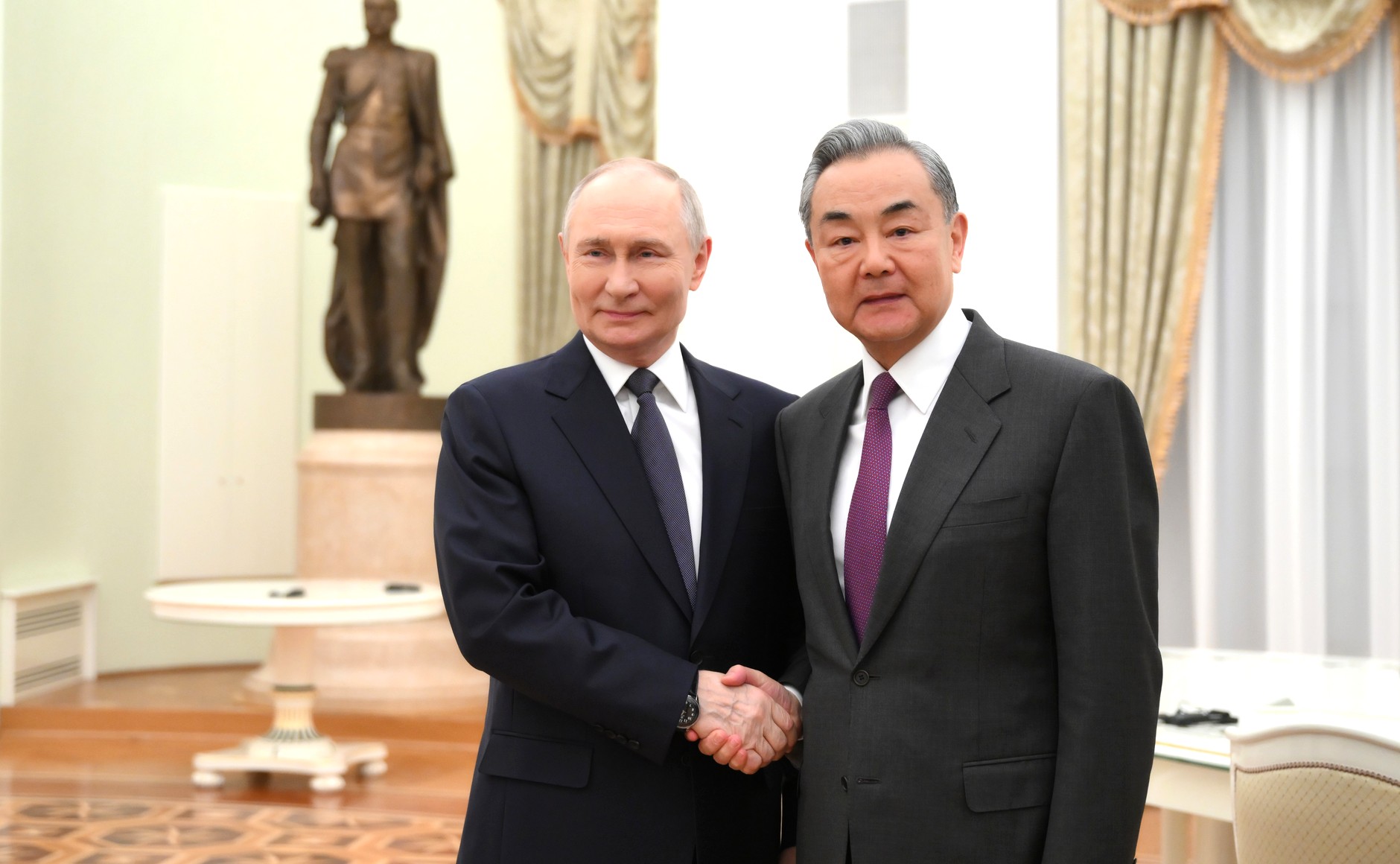
China and Russia have reaffirmed their deepening ties during a high-level visit by Chinese Foreign Minister Wang Yi to Moscow, where he met with Russian President Vladimir Putin and Foreign Minister Sergey Lavrov.
During a three-day visit to Russia, which began on 1 April, Wang Yi met with senior Russian officials and declared China and Russia are “friends forever, never enemies”.
“Cooperation between China and Russia is never directed against third parties and does not succumb to impediments coming from outside,” he said. “We will not tread water when it comes to advancing bilateral relations, and we have a broad prospects open to us. Our friendship is not based on fleeting considerations, but is of a long-term nature.”
In an interview with Russia’s state-run RIA Novosti, Wang he added that this principle “serves as a solid legal basis for advancing strategic cooperation at a higher level”.
Wang Yi’s visit was partly aimed at preparing for Chinese President Xi Jinping’s upcoming visit to Moscow in early May, where he is expected to be the guest of honour at Russia’s Victory Day celebrations, marking the 80th anniversary of the end of World War II.
A “rich and well-prepared” programme awaited Xi during his visit on the occasion of Russia’s “Victory Day”, Putin said.
“It is going to be an official visit … He’s going to be our main guest of honour and we will have a chance to speak about the current state of our bilateral relations and also to discuss our cooperation on multilateral platforms.”
“We’ll seize this opportunity to reflect on the current status of our bilateral relationship and strategize our collaborative endeavors on international stages,” he noted.
At a joint press event, Wang told Lavrov,
“China is willing to work with Russia to shoulder the special responsibilities as a permanent member of the UN Security Council, eliminate interference, stick to the right path, and promote a multipolar global order.
“Today, with my friend, I’m also willing to … strengthen our strategic coordination. I believe that this visit will fully prepare us for our high-level exchanges this year.”
Lavrov hailed the alliance as a “historical brotherhood in arms,” adding that the two countries’ ties had reached an “unprecedented high-level.” He described their coordination as “the most significant stabilising factor” at a “complex” time for global geopolitics. Lavrov also spoke of how ties between the two had reached “unprecedented” levels, as they strived to create a “more just and democratic multipolar world order”.
Wang also rejected speculation from Western analysts that the United States is seeking to divide Moscow and Beijing. The visit comes amid renewed speculation about a possible “Reverse Nixon” strategy by the United States—referring to Cold War-era moves by then-President Richard Nixon to isolate the Soviet Union by engaging with China.
In response, Wang dismissed such notions as “a relapse of obsolete confrontational and bloc-thinking” and criticised the “direct transactionalisation of international politics.”
The timing of Wang’s visit also coincides with the announcement of a partial ceasefire between Moscow and Kyiv in Ukraine.
maintained that ongoing US-Russia talks ON Ukraine “are worth taking” and said that “even a small step towards peace is constructive.”
“Peace requires hard work,” he told RIA. “We advocate eradicating the causes of the crisis through dialogue and negotiations, and ultimately achieving a fair, long-term, binding peace agreement acceptable to all parties involved.”
Putin and Xi have spoken twice in recent months—in February alone—highlighting the continued strategic alignment between Moscow and Beijing. After a meeting between Russian and US officials in Saudi Arabia in late February, Putin reportedly briefed Xi on the developments. Days later, top Russian security official Sergei Shoigu travelled to Beijing for discussions with both Xi and Wang.
Putin and Wang both reaffirmed their commitment to multilateral cooperation through platforms such as the United Nations, the Shanghai Cooperation Organisation (SCO), and BRICS.
Read more from Al Jazeera here, Reuters here, SCMP here and the Kremlin here.
